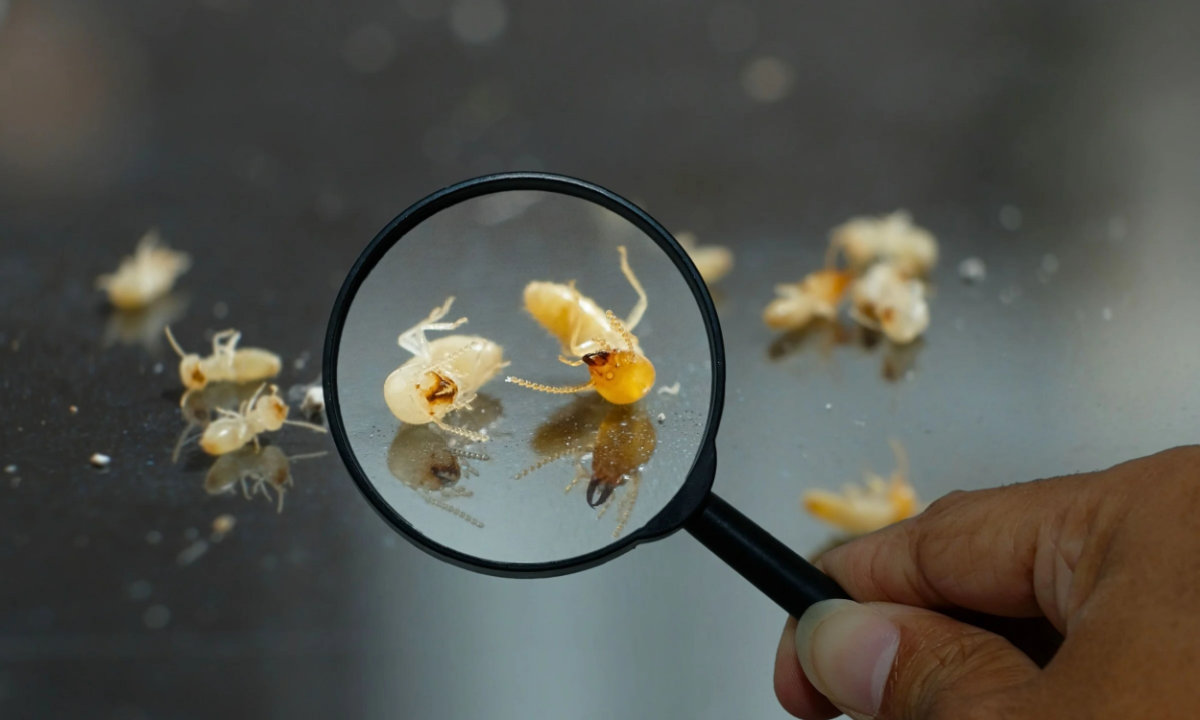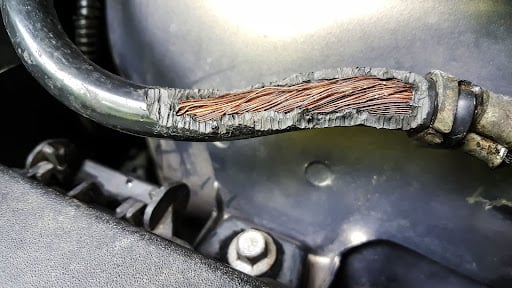Stink bugs, known for the foul smell released when they are squished, are common household pests found in many homes across the country. While stink bugs may look intimidating, they are relatively harmless to humans and typically don’t cause any property damage.
However, stink bugs tend to invade homes in large numbers and release an unpleasant odor when killed, making them a nuisance for many homeowners. Learn about how to properly identify stink bugs, as well as how to get rid of them and prevent them from re-entering your home. Request a Free, No-Obligation Quote
Request a Free, No-Obligation Quote
How to Identify Stink Bugs
Stink bugs have a distinct appearance, as they have torsos shaped like a shield and a speckled brown coloring. In addition, they have smooth, rounded shoulders and alternating dark and light bands on their abdomen and antennae.
Stink bugs are commonly observed standing still and can easily appear dead but are actually in a low-energy state called diapause, which occurs when they cannot find a food source.
Why Stink Bugs End Up in Your Home
The most common reason stink bugs enter homes is to seek shelter during the colder months. Once they have entered your home, stink bugs give off pheromones that attract more stink bugs, which is why you may see more than one stink bug at a time. Stink bugs can enter your home through cracks and crevices, such as damaged screens or windows.
When Are Stink Bugs Most Active
Stink bugs are most active from March through September, though this can vary depending on the weather during a particular season. Some studies have shown that stink bugs can survive during the winter.
Stink bugs are typically more active during the day but can also be attracted to light in the evening, such as a lamp or night light.
Are Brown Marmorated Stink Bugs Dangerous?
Brown marmorated stink bugs are not aggressive, do not bite people or pets, and are not known to transmit disease. However, some people may have an allergic reaction to the allergens given off by stink bugs, but this is rare.
Request a Free, No-Obligation Quote
Request a Free, No-Obligation Quote
How to Get Rid of Stink Bugs
Nevertheless, stink bugs can be a major pest. So, if you find yourself dealing with an infestation, there are a few keen steps you can take.
Vacuum Them
Vacuuming stink bugs is a quick and easy way to get rid of them. After you’re finished, empty your vacuum into a garbage bag and dispose of it outside of the home to prevent stink bugs from returning inside.
Use Soapy Water
Stink bugs can also be killed using soapy water, as they will drown in the solution. To try this method, simply fill a bucket up with water and soap before sweeping the stink bugs into the bucket. You can also use a splash of vinegar for extra strength.
Neem Oil
Neem oil is a naturally-occurring pesticide that can be used to kill stink bugs by interfering with their instinctual behaviors. When ingested by stink bugs, it can trick them into feeling like they are no longer hungry and can even cause infertility in the insects.
Essential Oils
There are several essential oils that are known to repel stink bugs and can be used as a more natural form of pest control. Try spraying lemongrass, clove oil, spearmint oil, and ylang-ylang around your home to ward off stink bugs.
Insecticides
While using insecticides may work in the short term, it is not a long-term solution for getting rid of stink bugs. Like termiticides, insecticides for stink bugs have to be properly applied. Therefore, when dealing with stink bugs, you should contact a pest control professional rather than taking matters into your own hands.
Call a Pest Control Expert
Stink bugs can be difficult to exterminate on your own, so it is advised that you contact a trusted stink bug control expert to conduct a stink bug inspection and treat the infestation appropriately.
Of course, homeowners do have the power to treat stink bugs, namely through prevention.
How to Keep Stink Bugs Out of Your Home
Seal Entries
Sealing up any possible entryways is essential to prevent stink bugs from entering your home. You can use caulk to seal any cracks and crevices where stink bugs could potentially squeeze through to keep these pests out of your home.
Check for Broken Screens
Stink bugs often enter residences through broken screens, so be sure to regularly check for any screens that may need to be repaired in your home.
Adjust Your Exterior Lighting
Stink bugs are attracted to light, so turning off your exterior lighting at night could prevent them from hanging around your home. It may also be helpful to use yellow bulbs for your outdoor lighting, as stink bugs are less attracted to this kind of light.
If you have been seeing stink bugs in your home, don’t ignore the problem. Contact a pest control expert to inspect your house and take the necessary steps to treat the problem. Pest control experts like Anchor Pest Control offer a pest control maintenance plan designed to repel insects like stink bugs from your home before they even enter.
FAQs
Do stink bugs bite?
Stink bugs are not aggressive and do not bite, as their mouths do not enable them to pierce through human skin.
Do dryer sheets keep stink bugs away?
The scent of dryer sheets has been known to keep stink bugs away, so try rubbing dryer sheets on your screens or any possible entryways to keep these pests out of your home.
How long do stink bugs stick around?
Stink bugs typically have a lifespan of about six to eight months and are primarily active from March to September. Request a Free, No-Obligation Quote




